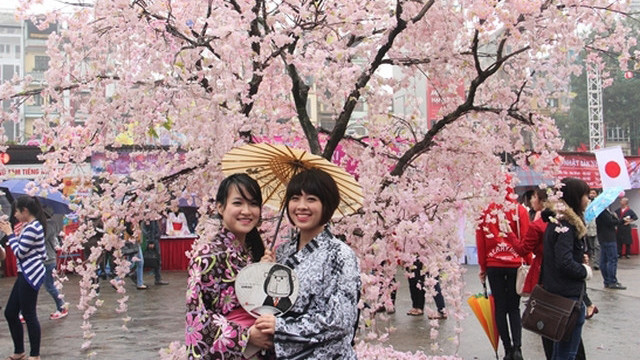


|
Illustrative image (Photo: VGP) The event
– jointly organised by the
During
the four-day festival, visitors will be able to experience traditional
Japanese handicrafts and delicacies, a Japanese tea ceremony, kimono fashion
shows, and traditional folk dances and games.
The event
will include traditional art performances such as Ca Tru (ceremonial
singing) and Xam singing (ballads sung by wandering blind
musicians) by artists from
In
addition, an investment and tourism promotion programme between
|
Source: NDO